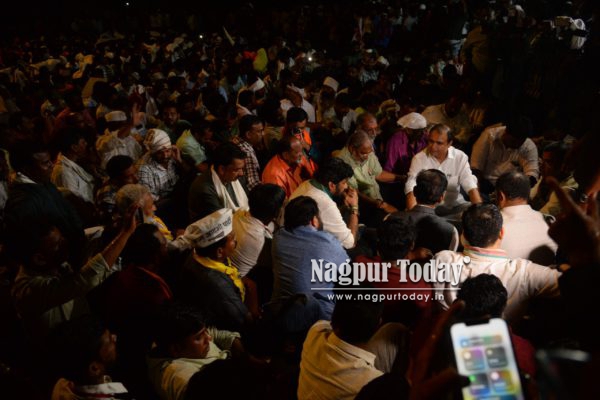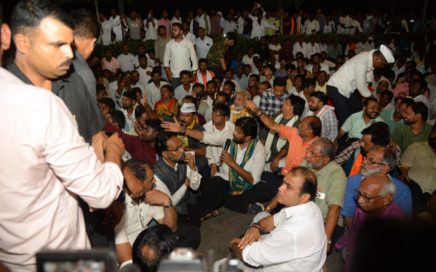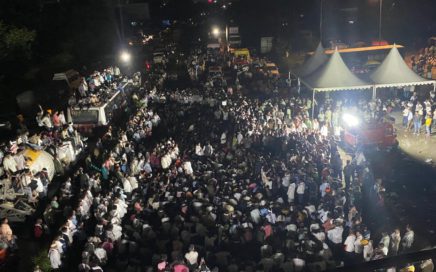Nagpur: The statewide farmers’ protest demanding complete loan waiver has taken a major turn. The agitation led by Prahar Janshakti Party leader and MLA Bacchu Kadu, which intensified on the second day, has now been put on temporary hold after fresh talks with the state government.
Farmers had blocked the Nagpur–Hyderabad highway and staged sit-ins at multiple locations, attempting to pressure the government for immediate relief. Following today’s discussions, Kadu announced a temporary suspension of the agitation.
Two state ministers met with Bacchu Kadu and his delegation earlier today. As a result, a decisive meeting has been scheduled with Chief Minister Devendra Fadnavis in Mumbai on October 30 at 6 p.m. The talks will cover key issues including complete farm loan waiver, electricity bill exemption, guaranteed pricing for agricultural produce, and relief measures for drought-affected regions.
Speaking to the media, Kadu said, “Our fight is for the rights of farmers. The government must understand their pain. If tomorrow’s meeting brings satisfactory results, we will reconsider our protest. But if the government ignores our demands, a statewide ‘Rail Roko’ agitation will begin on October 31.”
Though the protest has been temporarily paused, thousands of farmers across the state remain firmly behind Bacchu Kadu. Strong support was witnessed in Nagpur, Amravati, Buldhana, Wardha, and Yavatmal, with large turnouts from across Vidarbha.
Political circles in Maharashtra are closely watching the developments, as tomorrow’s meeting could determine the fate of the ongoing farmer agitation. For now, the farmers’ hopes—and the government’s response—both hinge on what emerges from that critical discussion in Mumbai.















